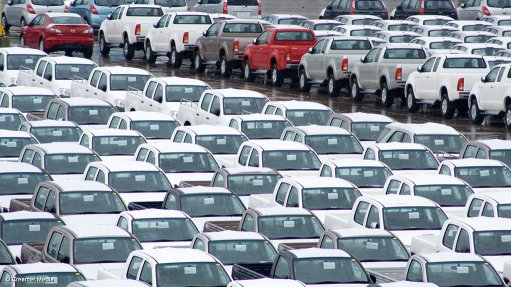
The South African new-vehicle market returned to its first full month of sales in June since the Covid-19 lockdown started.
However, this did not mean a return to the level of sales seen before the pandemic, as the domestic market remains under pressure.
Total South African new-vehicle sales declined by 30.7% in June to 31 867 units, compared with the 45 953 vehicles sold in the same month last year.
The new-passenger-car market fell by 33.4% to 19 264 units.
With the tourism sector still under strict lockdown, there was virtually no contribution by the car rental industry to support the market as is normally the case this time of the year, notes the National Association of Automobile Manufacturers of South Africa (Naamsa).
Domestic sales of new light-commercial vehicles, bakkies and minibuses declined by 29.7% to 10 189 units.
Medium truck sales, at 611 units, were down 26.6% compared with June last year, while heavy trucks and buses gained 6.5%, to 1 803 units.
June new-vehicle export sales, at 18 796 units, fell by 38.7%.
Vehicle exports for the first half of year are down 40.3% compared with the same period last year.
“The performance of vehicle exports over the course of 2020 remains linked to the duration of the Covid-19 pandemic and its impact on the health of the global economy,” says Naamsa.
“With the entire motor industry easing into full operation from June 1, and with the domestic automotive industry’s major export destinations starting to ease their lockdown restrictions, vehicle export numbers are anticipated to start gaining momentum again.”
HIGH LEVELS OF DEMAND
The decline in June sales was despite high levels of demand as seen by WesBank’s credit application data, which was at similar levels experienced towards the end of last year, and at higher volumes than June last year.
“There were a number of key changes to market behaviour that could be the beginning of new trends as car buyers adapt to short-term budget pressures as a result of the pandemic,” says WesBank head of marketing and communication Lebogang Gaoaketse.
“We expect these may become longer-term changes as the impact of Covid-19 ripples through the value chain.”
Most notable of these trends was the uptake of fixed rate deals, an opportunity provided by the particularly low interest rate environment.
South Africans have enjoyed a 2.5% reduction in interest rates since March, providing much-needed relief for indebted customers.
While rates will inevitably need to increase again in the short to medium term as outlined in the Finance Minister’s Supplementary Budget, consumers and businesses have taken advantage of the opportunity on new deals during June.
Interestingly, WesBank’s average deal size has also increased substantially.
“Increases in deal size between 10% and 15% across new and used vehicles compared to June last year either indicates a stronger appetite for quality stock based on price inflation, or an increase in the portion of debt in every deal,” says Gaoaketse.
“Market activity is expected to remain low for the remainder of the year as the uncertainties of the pandemic continue to bring pressure to bear, for consumers and business alike,” he adds.
“Household budgets were already under pressure before the lockdown and, within an economy that is now expected to shrink 7.2%, many potential buyers will delay their purchase decisions.”
WesBank expects the used-car market to continue to show higher levels of demand, providing better levels of affordability. However, some analysts expect to see an increase in used-car values as a result.
“June sales begin to provide a picture of what to expect for the remainder of the year,” says Gaoaketse.